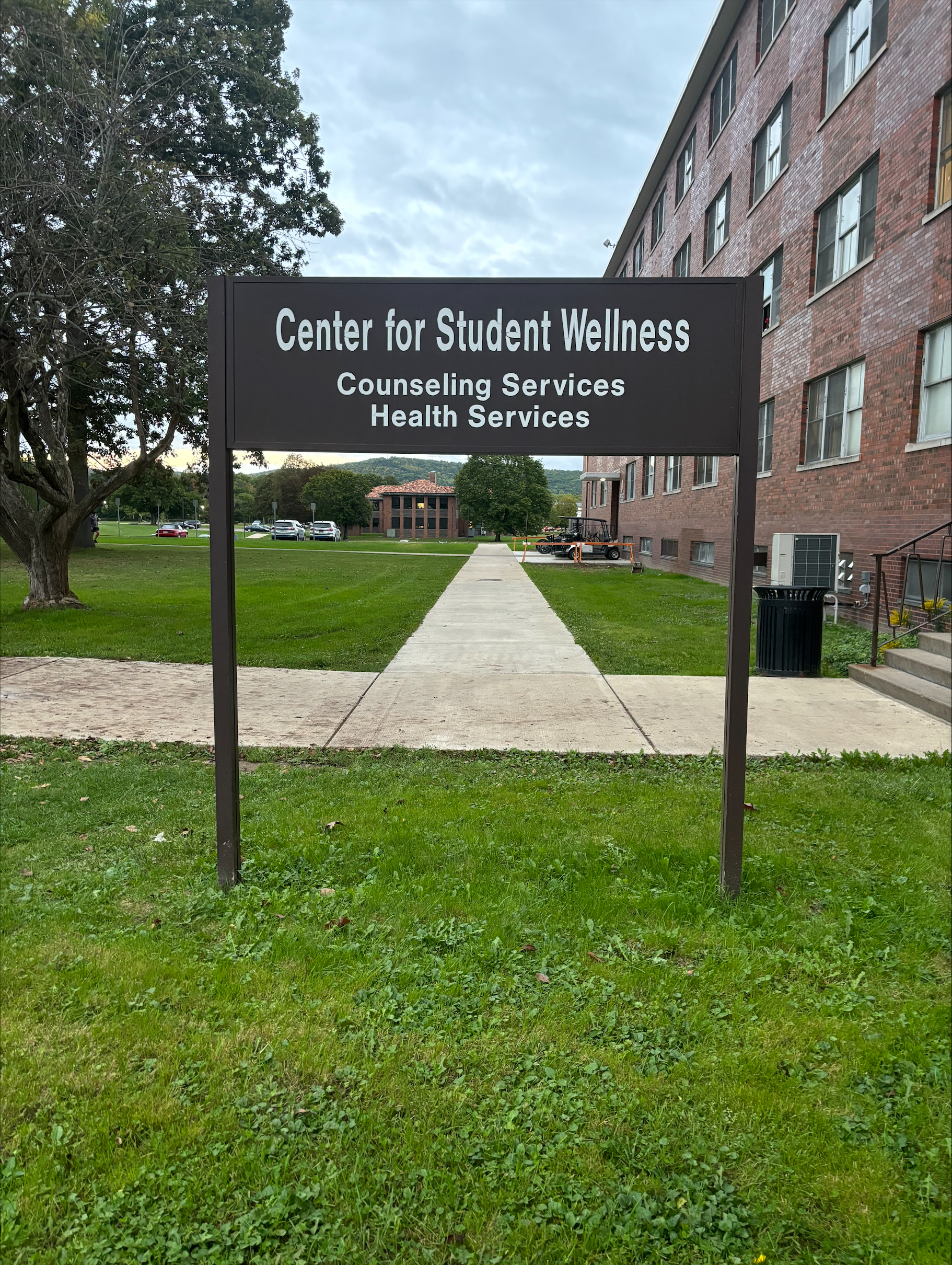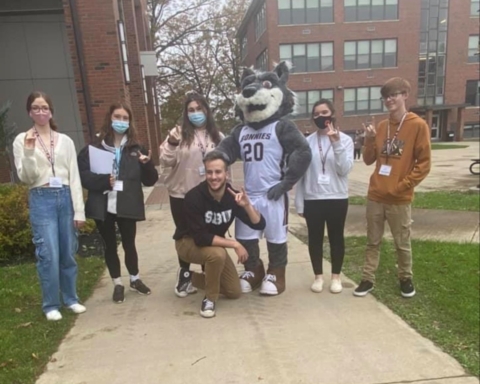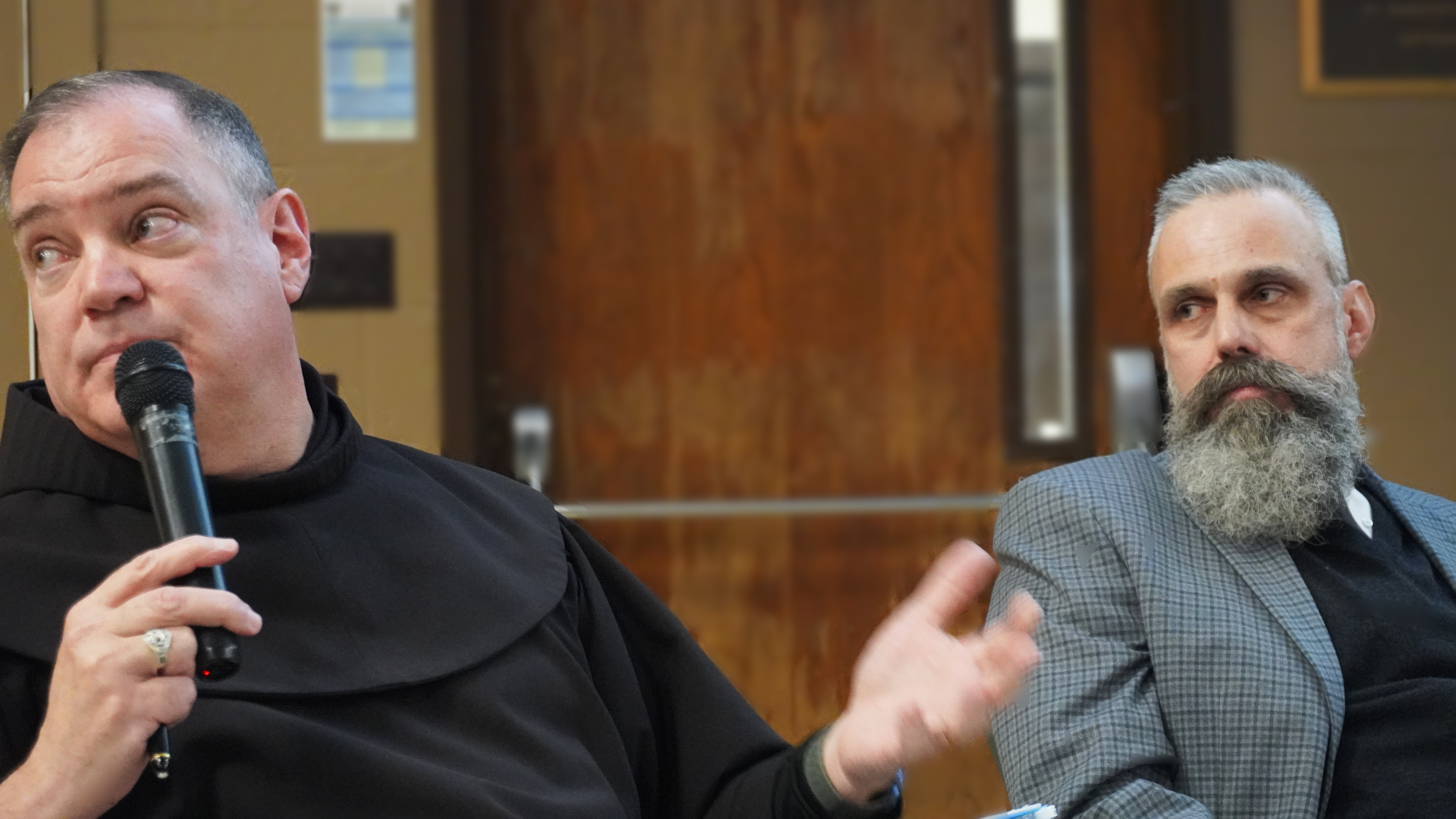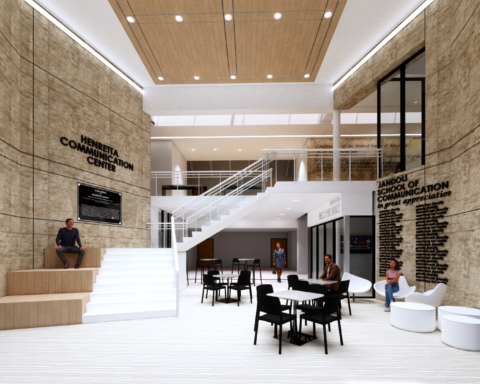By Ryan Signorino, Associate Editor
Since the COVID-19 pandemic began, face masks have become common. However, masks being mandatory is a new policy to St. Bonaventure University for Fall 2020.
Upon return to campus, and in addition to providing a negative PCR COVID-19 test, all students on and off campus signed a Community Compact stating what they will wear face coverings in order to protect themselves, others and the university and local communities. Four of the bullet points on the document are in regards to wearing masks in different places on campus.
“Masks are required almost everywhere on campus except for in your room, at a dining facility table or if you’re on the [Allegheny River Trail],” said Tom Missel, chief communications officer.
Students are learning these new policies have been strictly enforced, resulting in documentation.
“I walked into a building and briefly took off my mask to adjust it,” said sophomore computer science and cybersecurity student Janniel Badeas. “After doing that, an RA came toward me and told me to hand her my ID and said that we were getting written up,”
Another student was outdoors when she was documented for improperly wearing a mask.
“I had my mask on outside with a few of my close friends I am already around often, and I pulled my mask below my mouth for a short amount of time to get some air,” said sophomore chemistry student Paige King. “I thought it wasn’t a problem because I sit with these people at the dining hall without masks, and we were outside with no one else around.”
A third student was wearing their mask, but it was below their nose.
“I was walking into Shay and an RA stopped me and my roommate,” said sophomore health science student Evan Burton. “I had my mask below my nose, and the RA told us we already had an on-campus COVID case, so she had to write us up.”
Michael LaRock, a junior chemistry major and second lieutenant of the Medical Emergency Response Team (MERT), said the most effective way to wear a mask is having it completely covering both the mouth and the nose.
While all three students were violating the Community Compact, Burton and Badeas both said they thought being documented for the violation was extreme.
“We should have to wear masks for other people’s safety, but personally I think they should really just ask people to put their masks on if they don’t have them on, instead of immediately writing them up,” said Burton. “I completely understand writing someone up if they refuse to wear a mask, or are reportedly not wearing one multiple times. But I feel that giving a warning is the proper way to go about it especially if it’s the first time.”
Missel agreed repeatedly wearing a mask incorrectly is the main target for disciplinary action.
“Improper mask wearing just warrants a reminder on how to wear them properly,” said Missel. “If it comes to our attention that someone continually fails to comply with wearing one when they are supposed to, we will proceed with a judicial process and potentially levy sanctions.”
Missel also said enforcement of the policies should be something everyone on campus is taking part in, not just certain departments. He encouraged everyone to let people know if they are not following the rules or to submit a report if they feel uncomfortable addressing the situation themselves.
The Community Compact also says students will be “an active bystander for the well-being of others … [and] remind others to wear face coverings.”
Despite the write-ups, students were in agreement about the importance of wearing masks.
“I am all for wearing masks on campus even though it’s a bit annoying sometimes,” said Badeas. “I think the health of the campus is very important, and I do not want to be like the other schools who had to close.”
King said she has seen the mask rules being followed well in academic buildings and the dining hall, but sees people pulling them down when outside. She said she doesn’t see this as a problem if there is no one else near them.
“One thing that may be a problem is that the school gave everyone gaiters, which many people wear, and gaiters have been shown to be much less effective than regular masks,” said King.
Maggie Cole, a senior health science major and chief of MERT, also commented on masks being the safer face covering compared to gaiters, which were given to the students as part of a package when receiving their key.
“It’s been found that cloth masks and surgical masks are better than the neck gaiters, so if you do have the cloth or surgical, those are more preferred over the gaiter,” said Cole. “If the gaiter is all you have, it’s better than nothing.”
Despite the documentations for improper mask wearing and the mask-gaiter debate, everyone is in agreement the mask policies have been followed well to this point.
“I think they all realized from the outset of the semester, especially when they saw some other colleges shutting down after only a week or so in session, that they wanted to do everything they could to help us get to Thanksgiving break,” said Missel. “We’ve heard students say more than once, ‘We don’t want to go home.’”
In the end, wearing a mask is the simplest way to help keep us on-campus this semester, and the responsibility falls on each person, according to Cole and LaRock.
“Bonaventure’s mission is wisdom, integrity and passion, and wearing a mask is part of all three of them,” said LaRock. “Wearing a mask helps each other and keeps all of us safe. That’s what we all agreed to coming here.”







